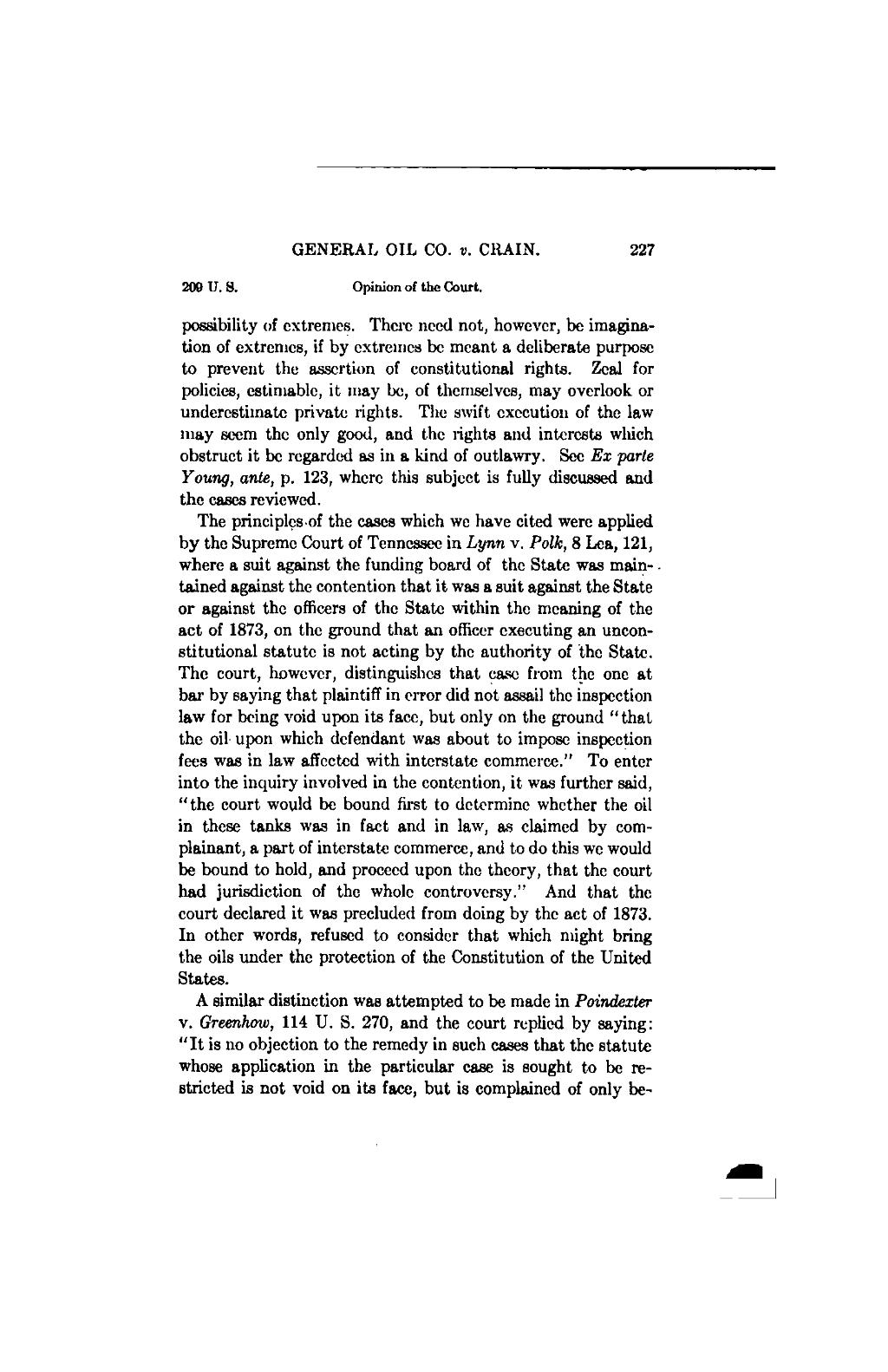209 U.S. Opinion of the Court. possibility of extremes. There need not, however, be imagina- tion of extremes, if by extremes be meant a deliberate purpose to prevent the asscrtion of constitutional rights. Zeal for policies, estimable, it may be, of themselves, may overlook or underestiznate private rights. The swift cxccution of the law may seem thc only good, and the rights and interests wlfich obstruct it be rcgardt?d as in a 'kind of outlawry. See Ex parte Young, ante, p. 123, where this subject is fully discussed and the cases reviewed. The principl.cs.of the cases which we have cited were applied by the Supreme Court of Tennessee in Lynn v. Polk, 8 Lea, 121, where a suit against the funding board of the State was main-. tained against the contention that it was a suit against the State or against the officers of the State within the meaning of the act of 1873, on the ground that an officer executing an uncon- stitutional statute is not acting by the authority of the State. The court, however, distinguishcs that c?c fi'mn t.hc one at bar by saying that plaintiff in error did not assail the inspection law for being void upon its face, but only on the ground "that the oil-upon which dcfendant was about to impose inspection fees was in law affected with interstate commerce." To enter into the inquiry involved in the contention, it was further said, "the court would be bound first to determine whcther the oil in these tanks was in fact and in law, ms claimed by com- plainant, a part of intemtate commerce, and to do this we would be bound to hold, and proceed upon the theory, that the court had jurisdiction of the whole controversy." And that the court declared it was preeluded from doing by the act of 1873. In other words, refused to consider that which might bring the oils under the protection of the Constitution of the United States. A similar distinction was attempted to be made in Poindexter v. Greenhow, 114 U.S. 270, and the court replied by saying: "It is no objection to the remedy in such cases that the statute whose application in the particular case is sought to be re- Btricted is not void on its face, but is complained of only be-
�
